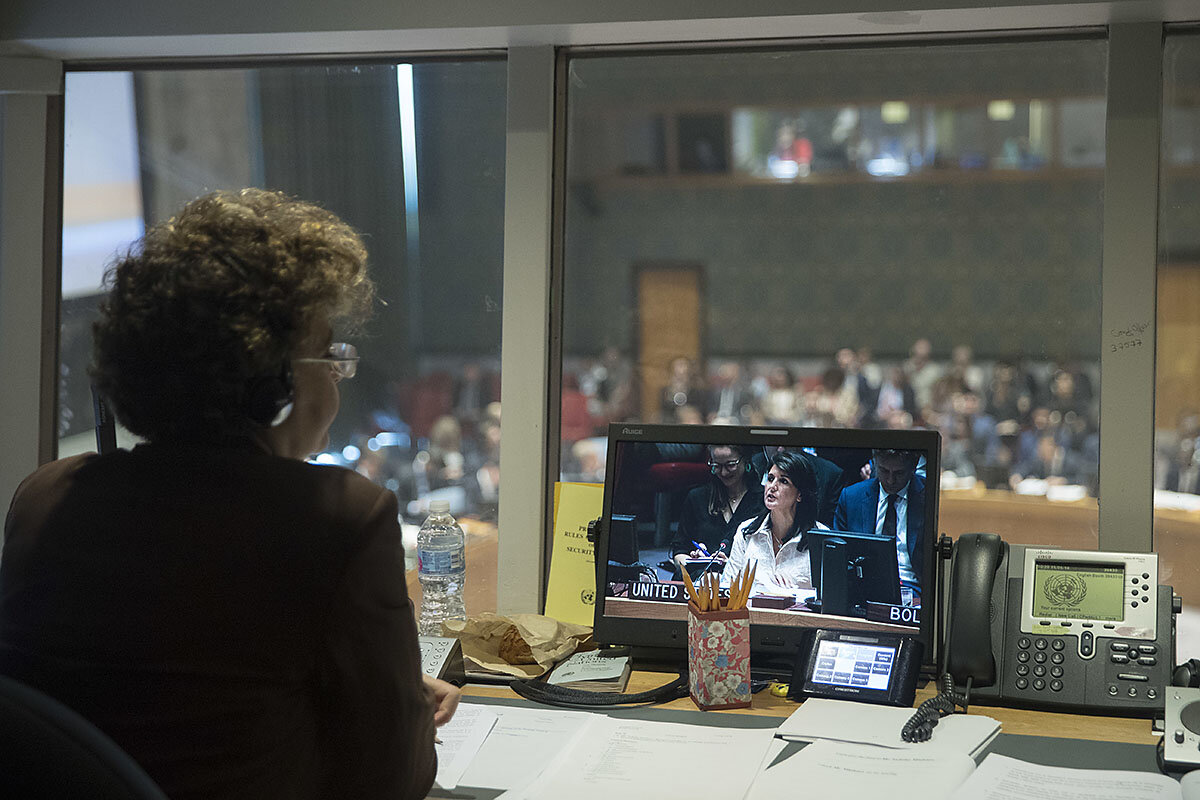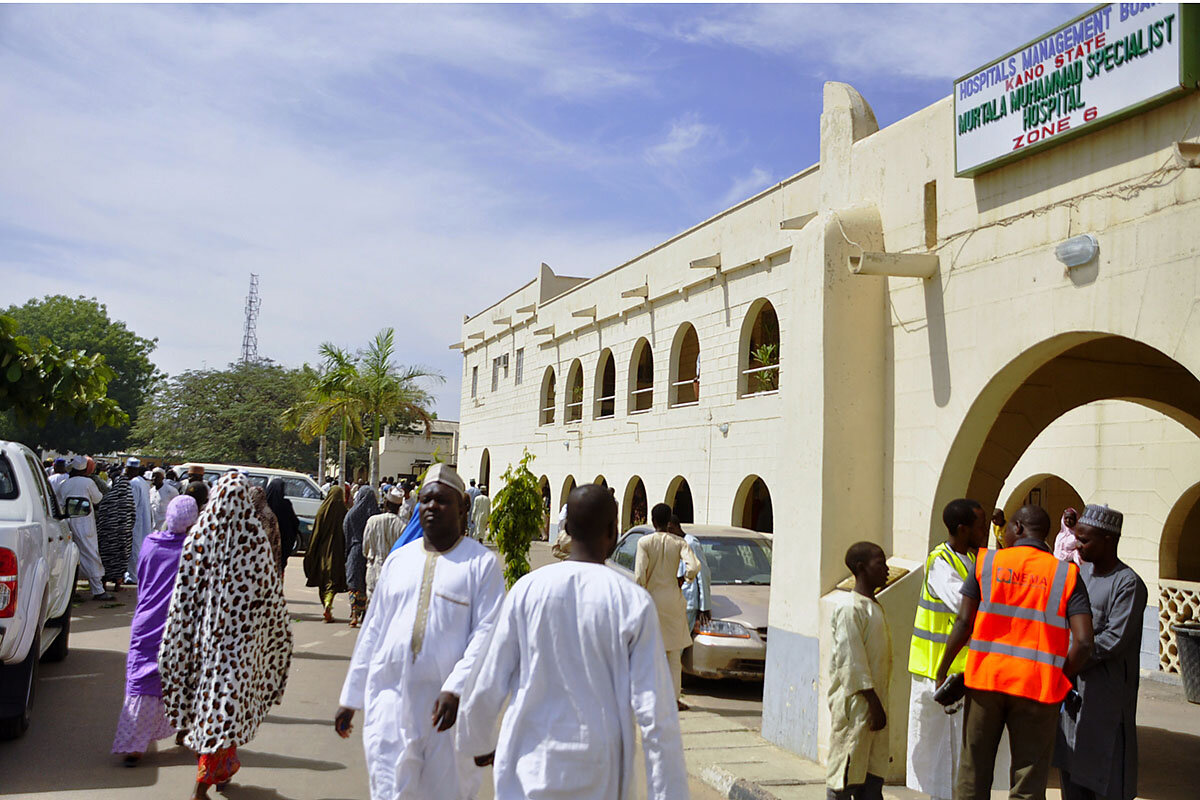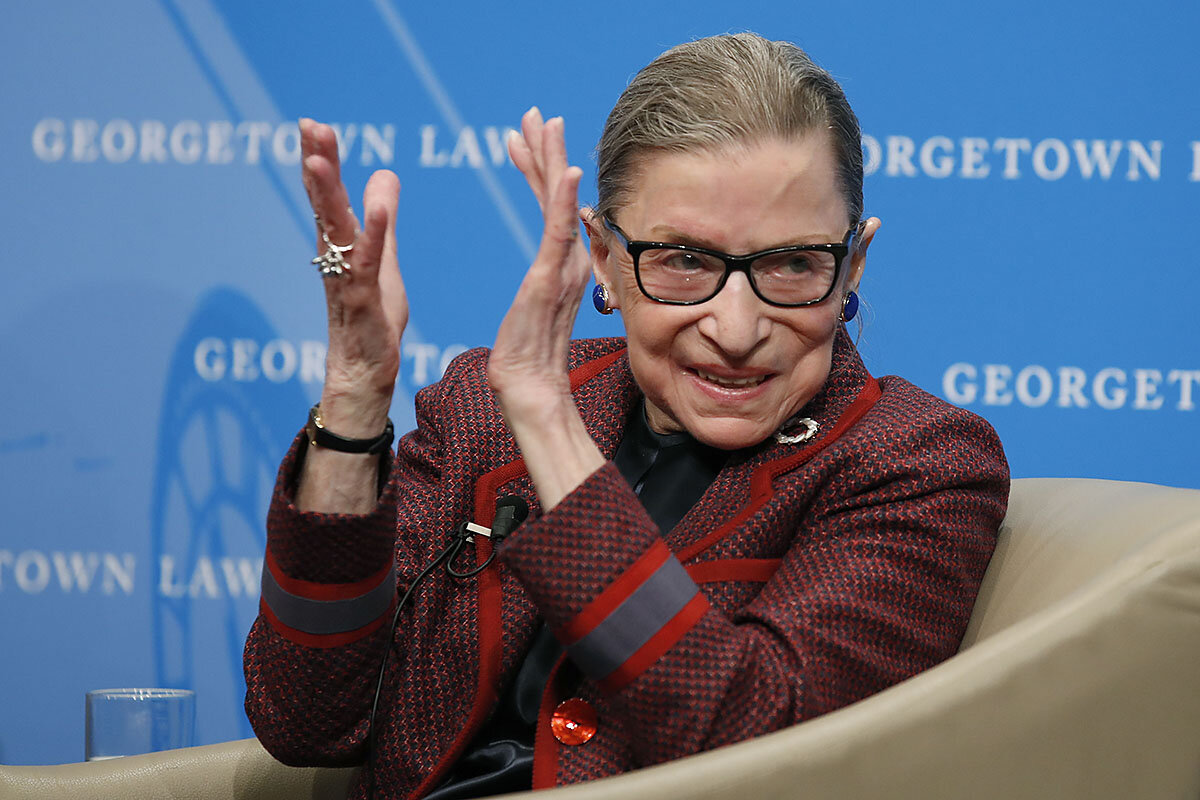The optics were awful. Even as VIPs in Jerusalem dedicated the relocated US Embassy, Israeli soldiers killed dozens of Palestinian protesters in Gaza. But beyond the timing, the partisan nature of the move has broader implications for Mideast peace and US diplomacy.
Monitor Daily Podcast
- Follow us:
- Apple Podcasts
- Spotify
- RSS Feed
- Download
 David Clark Scott
David Clark Scott
'Tis the graduation season, a time to celebrate educational achievement – especially among those who really persisted.
Take the mother and son who graduated together this month from Broward College in Fort Lauderdale, Fla. Kenneth McCray’s father died when he was 6. His mother was diagnosed with cancer three years later. He left college to help pay the bills after she lost her job in 2012. For two years they were homeless. But today, Patricia Love Davis is healthy and has a degree in criminal justice. Her son received his computer science degree on the same day.
“Two things my parents and grandparents instilled in me: God will never put you through more than you can handle, and this, too, shall pass,” said Ms. Davis.
Annie Watts offers another portrait of perseverance.
She dropped out of school in seventh grade to escape a violent household. Most of her life, Ms. Watts was told that she was ignorant. “It don’t make you feel good when people tell you that,” she told WAFF-TV in Huntsville, Ala.
But at age 70, she hit the books again and got her GED. Last Friday, the 75-year-old grandmother walked across the stage with an associate degree from Drake State Community and Technical College. Her favorite Bible verse was written on her mortarboard: “I can do all things through Christ who strengthens me.”
Now to our five selected stories, including a look at resilience in Hawaii, the ethics of a healthcare strike in Nigeria, and Justice Ruth Bader Ginsburg as pop star.










